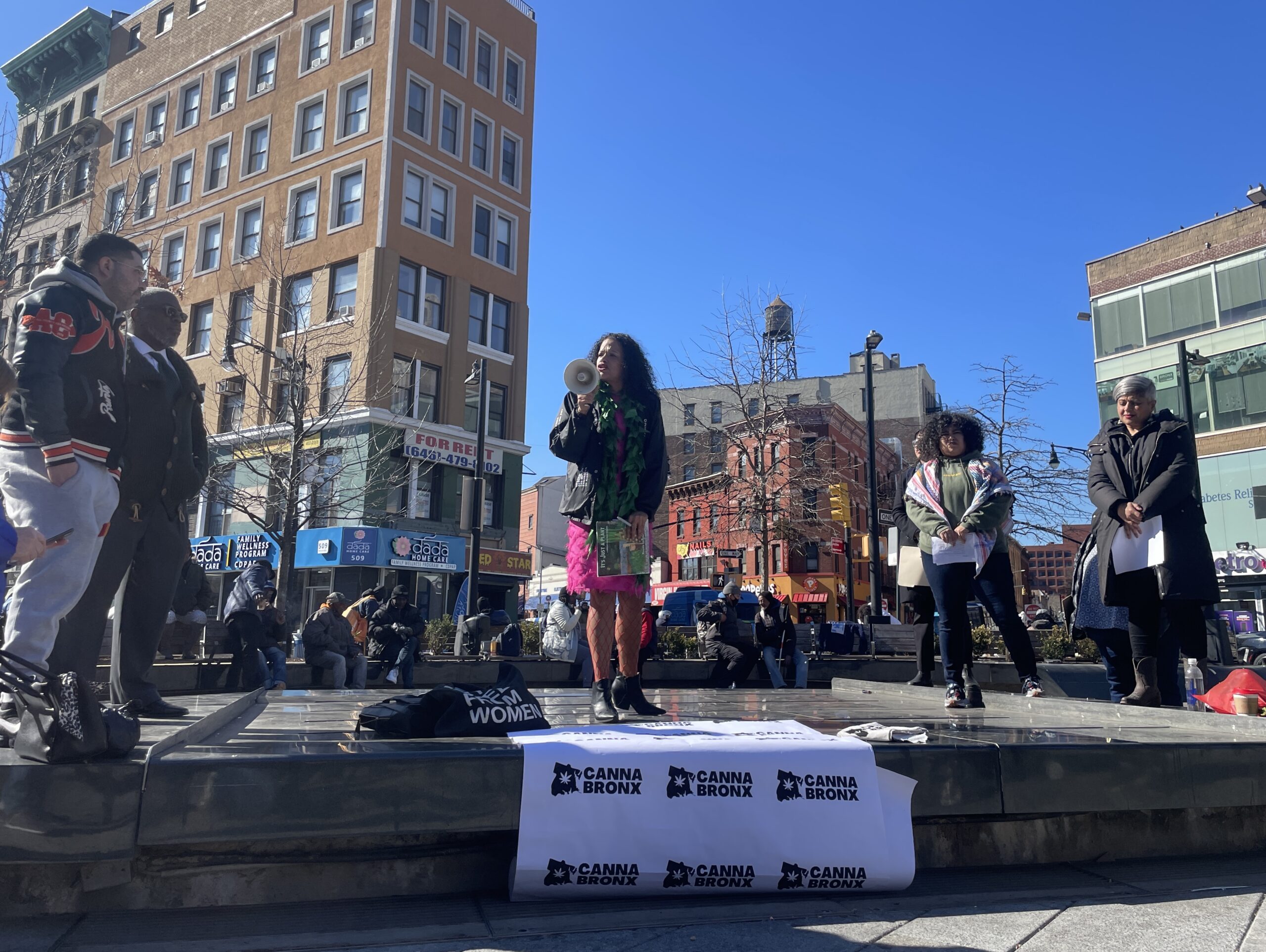Jason Morales would like to open a legal cannabis dispensary in the Bronx, his home borough. Formerly incarcerated for marijuana possession, he meets New York’s criteria as a “justice-impacted” individual.
For the past two years since cannabis was legalized in March 2021, however, he’s been shut out of even being considered to enter the legal industry.
“I have the skill, I have the potential, I just don’t have the money,” he told The Hunts Point Express.
On Tuesday, Morales joined a press conference in The Hub at 149th Street and 3rd Avenue, held by CannaBronx, a cannabis advocacy organization, to urge New York’s Office of Cannabis Management to prioritize social equity in the burgeoning industry.
When the Marihuana Regulation and Taxation Act legalizing cannabis was signed into law, it promised to prioritize “justice-impacted” individuals – those who were either themselves incarcerated for possession, or the relative of a person who was. Now, advocates say, the state’s proposed regulations don’t live up to those goals.
Despite the first marijuana dispensary licenses being given to people harmed by the war on drugs, they say not enough is being done to help them enter the industry.
The Office of Cannabis Management, which is charged with overseeing the industry, has released a 280-page list of proposed regulations, which are currently under review.
CannaBronx on Tuesday submitted comments on the regulations, taking issue with what it sees as a process too complex and restrictive for many people impacted by the “War on Drugs.” The comments were co-signed by local organizations including Bronx Defenders and Banana Kelly Inc.
According to them, the license application process is too expensive – the proposed regulations call for a $1,000 non-refundable application fee, in addition to $7,000 for an “adult-use retail dispensary license.” An applicant must also show “evidence regarding good moral character.”
“We don’t know what that means,” said Kavita Pawria-Sanchez, CEO of CannaBronx.
“We need services. We need lawyers, we need accountants, we need business plans,” said Pawria-Sanchez, emphasizing a need for funding that goes even further than the application fees.
Advocates at Tuesday’s press conference, however, took a constructive approach towards the changes they want to see.
“The [Office of Cannabis Management] has definitely done a good job, the best that they can given all the things they have to do,” said Pilar DeJesus, an activist and founder of the organization All That Jive. “This is an industry that has never existed,” she added.
At the same time, she said, “social equity applicants cannot wait for their reparations – the money should be available to us now.”
“Don’t forget the Bronx,” DeJesus said. “This is a beautiful community, … why not have a mom and pop cannabis dispensary here, too?”
So far, all three cannabis dispensaries approved by the state for licenses have opened in Lower Manhattan.
“Landlords, architects, permits, accountants, lawyers,” said Morales, describing just some of the additional costs associated with opening any small business. “This is America, big business is going to come and crowd us out before we’re even in.”
Dariella Rodriguez, a longtime community organizer at The Point CDC in Hunts Point, told The Express that she would also like to see other types of investment in communities like the South Bronx that were disproportionately affected by the criminalization of cannabis.
“How can we build infrastructure that ensures some of that money …. can also bring some justice to our neighborhoods?” she asked.
DeJesus said CannaBronx is planning a trip to Albany on March 28 to advocate for funding for justice-impacted individuals like Morales who want to enter the industry.
The trip coincides with the second anniversary of when the bill legalizing cannabis was passed, and will take place one week before the state’s budget is due.

